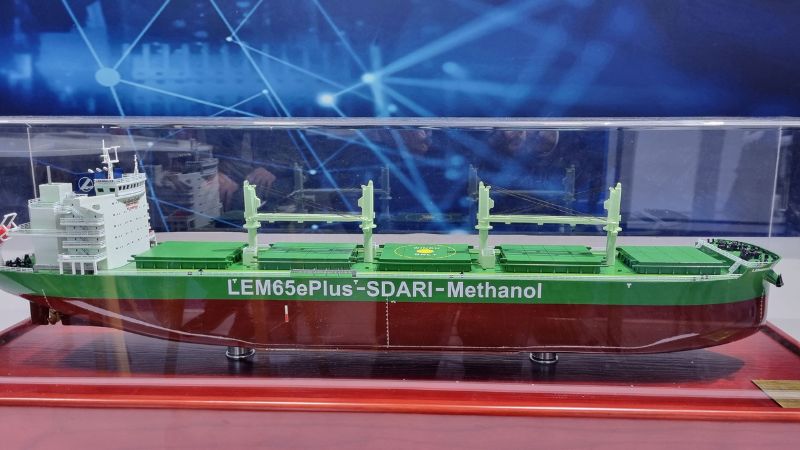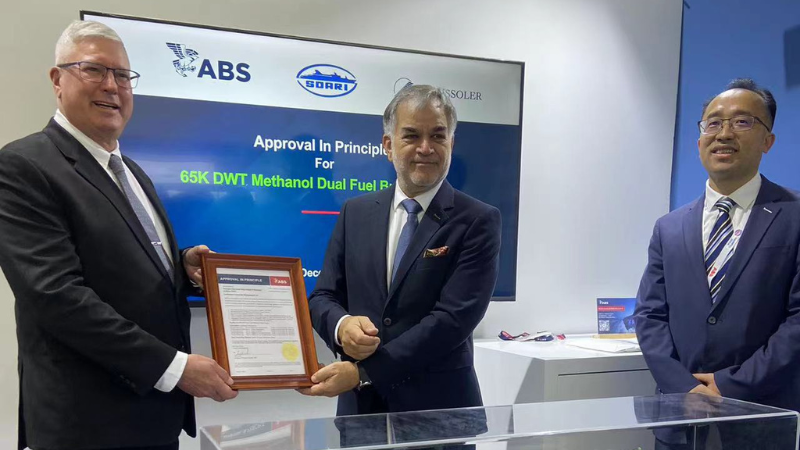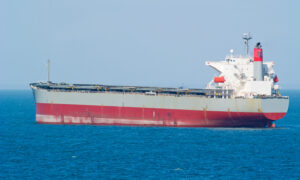
A design for China shipbuilding’s first methanol-fuelled ultramax bulk carrier has received approval from class society ABS.
Cyprus-based Lemissoler Navigation has secured approval in principle (AIP) from ABS for its design of a 65K dwt methanol-fuelled ultramax bulk carrier, the first such methanol vessel for China’s shipbuilding industry.
The so-called “Lem65ePlus-SDARI” methanol design, a joint development of Lemissoler and Shanghai Merchant Ship Design and Research Institute (SDARI), explores the feasibility of using methanol as fuel to reduce carbon emissions to reach the IMO’s net-zero target by 2050.
The vessel has been thoroughly optimized and its preliminary Energy Efficiency Design Index (EEDI) was reviewed and indicated that it exceeds well EEDI Phase 3 standards. The American Bureau of Shipping (ABS) completed design reviews based on class and statutory requirements.
“Methanol is a promising fuel source to reduce shipping emissions, and this new design from Lemissoler is an exciting opportunity for China shipbuilding to show leadership once again in the decarbonization of our industry,” said Vassilios Kroustallis, ABS senior vice president of global business development.
Founded in 1996 in Limassol, the Philippos Philis-led Lemissoler has a fleet of 12 eco bulk carriers on the water built between 2015 and 2020.
“We at Lemissoler are once again pioneering new technological and innovative designs for our Dry Bulk fleet. The collaboration with SDARI and ABS is proof of how much can be achieved collectively. This new evolution design is another step toward Lemissoler’s target to become net zero by 2045,” noted Philippos Philis, chairman and chief executive of Lemissoler Navigation.
“As the designer of this innovative methanol-fueled vessel, SDARI is always committed to tailormade and deliver practical solutions to customers’ demands, offering an optimized design to satisfy future maritime rules and regulations,” said Zhou Zhi-yong, vice president of SDARI.



